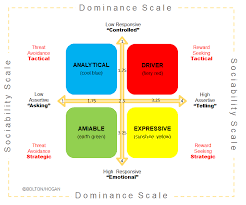The Psychology of Judgment and Decision Making
Decision making is a complex process that involves evaluating options, predicting outcomes, and ultimately choosing a course of action. This process is influenced by a variety of factors, including cognitive biases, emotions, and social influences.
Judgment, on the other hand, refers to the evaluation of information in order to form an opinion or make a decision. It involves assessing the credibility and reliability of information before using it to inform decisions.
Psychologists have long been interested in understanding how people make judgments and decisions. Research in this area has revealed that individuals often rely on heuristics or mental shortcuts when making decisions. While heuristics can be useful in simplifying complex decision-making tasks, they can also lead to errors in judgment.
Cognitive biases also play a significant role in shaping our judgments and decisions. These biases are systematic errors in thinking that can affect our ability to make rational choices. Common cognitive biases include confirmation bias, anchoring bias, and availability heuristic.
Emotions can also influence our decision-making process. Research has shown that emotional states can impact the way we evaluate options and make choices. For example, individuals experiencing fear may be more likely to avoid risks, while those feeling happy may be more willing to take chances.
Social influences further complicate the decision-making process. People are often influenced by the opinions and actions of others when making judgments and decisions. This phenomenon is known as social proof or conformity bias.
Understanding the psychology of judgment and decision making can help individuals make more informed choices. By recognizing the various factors that influence our decisions, we can strive to make better choices that align with our goals and values.
6 Essential Tips for Better Judgment and Decision Making
- Consider all available information before making a decision.
- Take your time to weigh the pros and cons of each option.
- Seek advice or input from others to gain different perspectives.
- Trust your instincts, but also rely on logic and reasoning.
- Be aware of your biases and try to make objective judgments.
- Learn from past decisions, whether good or bad, to improve future judgment.
Consider all available information before making a decision.
When it comes to judgment and decision making, it is crucial to consider all available information before reaching a conclusion. By thoroughly evaluating all relevant data, facts, and perspectives, individuals can make more informed and rational decisions. Taking the time to gather and analyze information from various sources can help minimize the impact of biases and emotions, leading to better outcomes in the decision-making process. It is important to weigh all available information carefully to ensure that the decision aligns with one’s goals and values.
Take your time to weigh the pros and cons of each option.
When it comes to judgment and decision making, taking the time to carefully weigh the pros and cons of each option is crucial. By thoroughly evaluating the advantages and disadvantages of different choices, you can make a more informed decision that aligns with your goals and values. Rushing through the decision-making process can lead to overlooking important factors or making impulsive choices. Taking the time to consider all aspects of each option allows for a more thoughtful and rational decision-making process.
Seek advice or input from others to gain different perspectives.
Seeking advice or input from others is a valuable tip when it comes to judgment and decision making. By consulting with others, we can gain different perspectives that we may not have considered on our own. This can help us see the situation from various angles, identify potential blind spots, and ultimately make more well-rounded and informed decisions. Input from others can provide valuable insights, challenge our assumptions, and lead to better outcomes in the decision-making process.
Trust your instincts, but also rely on logic and reasoning.
When it comes to judgment and decision making, it is important to strike a balance between trusting your instincts and relying on logic and reasoning. Your instincts can provide valuable insights based on your past experiences and intuition, guiding you towards a quick decision. However, it is equally crucial to engage in logical thinking and reasoning to evaluate the situation objectively, consider all relevant information, and weigh the potential outcomes. By combining your instincts with logical analysis, you can make well-informed decisions that take into account both your intuition and rational thought processes.
Be aware of your biases and try to make objective judgments.
When it comes to judgment and decision making, it is crucial to be aware of your biases and strive to make objective judgments. By acknowledging and understanding the cognitive biases that may influence your decision-making process, you can take steps to mitigate their impact. Making a conscious effort to approach decisions with objectivity and rationality can help you make more informed choices that align with your goals and values. Remembering to consider alternative perspectives and seeking out diverse sources of information can also help you broaden your understanding and make more balanced judgments.
Learn from past decisions, whether good or bad, to improve future judgment.
Learning from past decisions, whether they were successful or unsuccessful, is crucial for improving future judgment and decision-making. Reflecting on past experiences allows us to identify patterns, understand what worked well, and recognize areas for improvement. By analyzing the outcomes of our previous decisions, we can gain valuable insights that help us make more informed choices in the future. Embracing both positive and negative experiences as learning opportunities enables us to grow and develop a more effective decision-making process over time.




